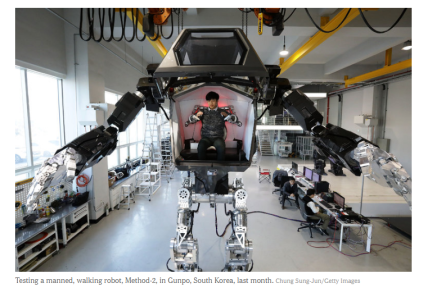 2017 had an ok start; nothing bad particularly happened (besides the presidential inauguration to most people). The weather has turned quite peculiar. Friday had one of the hardest rain showers in years. The rain was pouring down so hard that just standing in it for an entire minute drenched my jacket. The winds were so powerful that it bent and snapped the frame of my umbrella. On Saturday, the weather turned relatively calm; the sky was sunnier and mostly clear and the winds turned calm. By the looks of it, rain would not come again for possibly a few days or weeks. Boy was I wrong. The rain came back today, Sunday January 22nd, but it was more aggressive and lasted longer than any rainy day in the past few years. If you want to know how long it has been raining, it has been pouring since last night and is still active while I am writing this blog post so late in the evening. While I appreciate the skies providing us with water that we desperately needed for so long, it makes me wonder what is happening to our world that is making the atmosphere give us more rain. I’m not going to complain about it and say its a bad thing, but it’s still a provocative thought as to how our world is changing.
2017 had an ok start; nothing bad particularly happened (besides the presidential inauguration to most people). The weather has turned quite peculiar. Friday had one of the hardest rain showers in years. The rain was pouring down so hard that just standing in it for an entire minute drenched my jacket. The winds were so powerful that it bent and snapped the frame of my umbrella. On Saturday, the weather turned relatively calm; the sky was sunnier and mostly clear and the winds turned calm. By the looks of it, rain would not come again for possibly a few days or weeks. Boy was I wrong. The rain came back today, Sunday January 22nd, but it was more aggressive and lasted longer than any rainy day in the past few years. If you want to know how long it has been raining, it has been pouring since last night and is still active while I am writing this blog post so late in the evening. While I appreciate the skies providing us with water that we desperately needed for so long, it makes me wonder what is happening to our world that is making the atmosphere give us more rain. I’m not going to complain about it and say its a bad thing, but it’s still a provocative thought as to how our world is changing.
Place in Society
 I read an article from NY Times by Lucinda Rosenfeld in class a few days ago regarding ideas of social status in America today. The thing I despise about the idea of social status is the divisions it causes in our world. We have seen down in history how social statuses were shaped by discrimination, gender, wealth, and lots of other factors. This leads to millions of people being unable to live prosperously and richly compared to others above them. Reading this article by Rosenfeld made me realize that even though these people of low statuses are hindered by their placement in society, they still have the potential to grow and work their way up the ladder. Society is like the average workplace: you start as at the bottom as a common worker and then rise in the ranks through promotions. Everyone has the chance to raise themselves in society, but it all depends on the work they give that takes them there.
I read an article from NY Times by Lucinda Rosenfeld in class a few days ago regarding ideas of social status in America today. The thing I despise about the idea of social status is the divisions it causes in our world. We have seen down in history how social statuses were shaped by discrimination, gender, wealth, and lots of other factors. This leads to millions of people being unable to live prosperously and richly compared to others above them. Reading this article by Rosenfeld made me realize that even though these people of low statuses are hindered by their placement in society, they still have the potential to grow and work their way up the ladder. Society is like the average workplace: you start as at the bottom as a common worker and then rise in the ranks through promotions. Everyone has the chance to raise themselves in society, but it all depends on the work they give that takes them there.
When I read this article in class, I already finished reading the classical novel The Great Gatsby. One of the characters, Jay Gatsby, apparently started off poor and in the lower classes of society while the love of his life was of a higher class compared to him. When he was shipped off to fight in WWI, his love decided to marry a richer man that could give her the wealth that her current class could not give her. When Gatsby returned home, poor and homeless, he was disappointed to learn how he lost his lover, but he aspired to rise up in the ranks of society and grow richer to win her back. We can clearly see when we read the book that Gatsby’s hard work and aspirations to win back his lover helped him in succeeding in his goal in rising up in society’s ranks.
Failure
 In my opinion, Studio C is one of the best comedy sketch groups on the internet. I watched every new video that they post, but I still enjoy going back and viewing their old content. I went back and watched their The Ultimate Football Fail video. It takes place in a locker room after a high school football game. The protagonist of the skit is one of the smaller players on the team, who was humiliated in the game for “failing” to stand up against one of the enemy team’s players, and one of his larger, stronger teammates could not help but make fun of him for it. After receiving these insults, the player attempted to fight back, but could not find any way to insult his teammate. The teammate then bragged that the smaller player “failed” yet again. The smaller player retaliates that his teammate would not understand failure because he had experienced it before. This leads to an entire argument between the two about whether or not it is great that one has not experienced failure.
In my opinion, Studio C is one of the best comedy sketch groups on the internet. I watched every new video that they post, but I still enjoy going back and viewing their old content. I went back and watched their The Ultimate Football Fail video. It takes place in a locker room after a high school football game. The protagonist of the skit is one of the smaller players on the team, who was humiliated in the game for “failing” to stand up against one of the enemy team’s players, and one of his larger, stronger teammates could not help but make fun of him for it. After receiving these insults, the player attempted to fight back, but could not find any way to insult his teammate. The teammate then bragged that the smaller player “failed” yet again. The smaller player retaliates that his teammate would not understand failure because he had experienced it before. This leads to an entire argument between the two about whether or not it is great that one has not experienced failure.
The argument can be more clear by watching the video rather than summarizing it, but we get to see two different viewpoints in this question as to whether or not it are benefits in failing.
The teammate felt that if he never experiences failure, then he would always have a sense of confidence in himself. This makes him believe that he should take easy routes in life so that he would never experience mistakes in his life.
The main character believes that if one does not experience failure once in a while, he or she will not experience personal growth from those mistakes nor develop into a better character. They would not be able to relate to others who also made mistakes. If that one person who never made a mistake in his or her life made just one, that person would shatter all of their confidence and give up trying. This person would then try to avoid the harder experiences in life in order to stop experiencing the feelings they receive after making their mistakes.
In this argument, I took the side of the protagonist. He made valid points. The reason why most people are who they are is because of the mistakes they made in the past. They learn from those mistakes and grow into a different person. Without failure, we won’t ever feel sorrow for others in their mistakes and won’t strive for great achievement. I experience failure just about every day, and I have to admit that I feel that the person I grew up to become came from these mistakes.
Beep Boop
 An article by the New York Times discusses about the future of robotics in our world. By the looks of the growth in technological advancements nowadays, we may see more and more robots running our industries and lives. Everything becomes automated and almost parallels the advancements in the Industrial Revolutions of the world. By 2055, the Third Industrial Revolution may become part of the history textbooks of the future. With a large trend in growth in the human population, we may need the help of these untiring machines to help sustain human life. This brings up the worry as to whether machines will eventually take over the entire labor force of the world, leaving a large number of people without jobs. While it is not very likely that this scenario would occur, it is striking to think about the possibilities and the effect it would have. The article brings up the question as to where artificial intelligence may become major aspects of our technological society. We already have limited AI’s in the form of SIRI, Cortana, and all other forms of voice-reading/voice-activated software. Who knows how much these programs could advance. With technology being a major aspect of the present day, it is interesting to think about how much more it can develop towards the future.
An article by the New York Times discusses about the future of robotics in our world. By the looks of the growth in technological advancements nowadays, we may see more and more robots running our industries and lives. Everything becomes automated and almost parallels the advancements in the Industrial Revolutions of the world. By 2055, the Third Industrial Revolution may become part of the history textbooks of the future. With a large trend in growth in the human population, we may need the help of these untiring machines to help sustain human life. This brings up the worry as to whether machines will eventually take over the entire labor force of the world, leaving a large number of people without jobs. While it is not very likely that this scenario would occur, it is striking to think about the possibilities and the effect it would have. The article brings up the question as to where artificial intelligence may become major aspects of our technological society. We already have limited AI’s in the form of SIRI, Cortana, and all other forms of voice-reading/voice-activated software. Who knows how much these programs could advance. With technology being a major aspect of the present day, it is interesting to think about how much more it can develop towards the future.
Fake News vs. Teenagers
 Last week, we started a day in class where my teacher showed us a Twitter post from a news site. The post showed a picture strange-looking flowers that are said to be from Fukushima, Japan. The Twitter post claimed that the mutated appearance of the flowers were caused by radiation leaks from the Fukushima nuclear power plant after it was damaged from the 2011 tsunami. My teacher challenged my classmates and me to determine whether or not the news article was real or fake. We all voted our opinions and my teacher collected our results. After collecting our results, my teacher had us listen to a podcast discussing about the claims regarding the cause of the flowers’ mutation. From the podcast, we learn that this post was false because there was no actual proof that the radiation from the power plant was the cause of these mutations. The podcast led to another discussion about how students from various other schools were put through tests to determine whether they can determine the validity of news articles. We found that 80% of those students could not determine whether news articles held truth. While only 70% of our class was unable to realize that the Twitter post held false news, it was really shocking to realize how difficult it is for teenagers to distinguish facts and lies. I was one of the 70% of students in my class that thought that the Twitter post was real and I am ashamed that I was unable to realize it at first.
Last week, we started a day in class where my teacher showed us a Twitter post from a news site. The post showed a picture strange-looking flowers that are said to be from Fukushima, Japan. The Twitter post claimed that the mutated appearance of the flowers were caused by radiation leaks from the Fukushima nuclear power plant after it was damaged from the 2011 tsunami. My teacher challenged my classmates and me to determine whether or not the news article was real or fake. We all voted our opinions and my teacher collected our results. After collecting our results, my teacher had us listen to a podcast discussing about the claims regarding the cause of the flowers’ mutation. From the podcast, we learn that this post was false because there was no actual proof that the radiation from the power plant was the cause of these mutations. The podcast led to another discussion about how students from various other schools were put through tests to determine whether they can determine the validity of news articles. We found that 80% of those students could not determine whether news articles held truth. While only 70% of our class was unable to realize that the Twitter post held false news, it was really shocking to realize how difficult it is for teenagers to distinguish facts and lies. I was one of the 70% of students in my class that thought that the Twitter post was real and I am ashamed that I was unable to realize it at first.